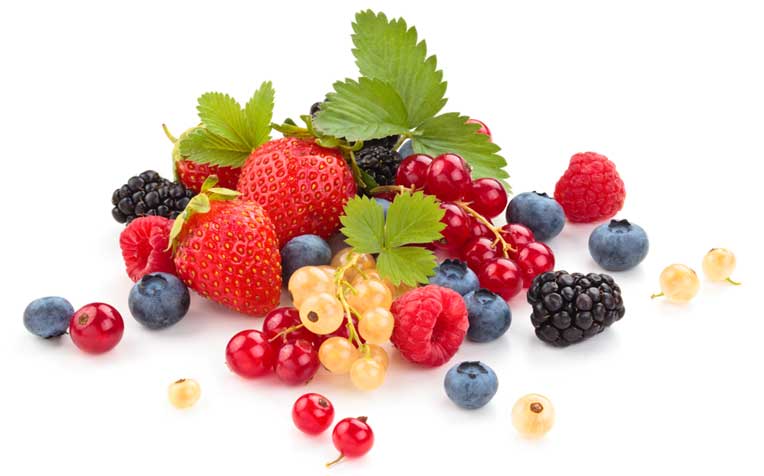1. Free radicals from stress, pollution, and unhealthy habits contribute to aging; antioxidants help combat their damaging effects.
2. Vitamins A and E are powerful antioxidants found in fruits, vegetables, oils, nuts; protect against various diseases.
3. Moderation is key; excessive vitamin A/E supplementation can be harmful, especially for pregnant women and smokers.

Antioxidants are thought to be able to slow down ageing.
Gerontologist Denham Harman, also known as the ‘father of the free radical theory of ageing’ was the first to discover the concept of free radicals in 1954, which are now suggested as one of the major contributors to ageing.
Free radicals are reactive molecules and are involved in disease development. Sources of free radicals include stress, pollution as well as smoking and high alcohol consumption. The need for antioxidants in our daily life is thus crucial due to increased exposure to such free radicals.
What are antioxidants?
Antioxidants are thought to be able to slow down ageing and thus improve skin health through preventing reactive oxygen species from causing damage to our biological system. This is done by detoxifying these reactive oxygen species and thus be able to repair the resulting damage on proteins, fats, and DNA.
Antioxidants are also capable of repairing damaged molecules like your DNA and can promote the destruction of cancer cells therefore stop cancer growth.
With healthy DNA, immune systems are strengthened. By preventing brain ageing, better memory performance and prevention of progressive cognitive impairments can be expected, suggesting antioxidants’ role in preventing diseases like Alzheimer’s.
Beta-carotene (a substance from which Vitamin A is formed) and vitamin E are believed to be weapons against heart disease and cancer. Both these vitamins are fat-soluble antioxidants, which can protect your cell membranes.
Vitamin A: What is it and why we need it

Vitamin A is derived from beta-carotene (plant sources), which is responsible for the red-orange colour of some vegetables and fruits, especially carrots and sweet potatoes, and from retinoid (animal sources).
Vitamin A is needed for healthy skin and mucus membranes, for good eye health and vision and aids in building our immune system. Some studies have suggested that at least 4 daily servings of beta-carotene rich fruits and vegetables is required to lower cancer and heart disease risk.
According to Singapore Health Promotion Board1, about 750mcg of Vitamin A in terms of retinol activity equivalents (2500IU/day) is required every day in normal adults. However, the US RDA2 suggests not taking more than 3000mcg per day (10 000IU/day).
Vitamin E: What is it and why we need it

Vitamin E comes in eight different subtypes with different antioxidant activity. Out of these subtypes, alpha-tocopherol has the greatest antioxidant activity, and it is the only form that is recognised to meet human requirements.
Common dietary sources of Vitamin E include:
- raw vegetable oils,
- eggs, and
- nuts.
In the human body, vitamin E protects cell membranes and circulating serum lipoproteins from oxidation, thereby possibly delaying chronic diseases, inhibiting the ‘wear-and-tear’ pigments (also known as lipofuscins) accumulation which is a sign of ageing.
One study conducted found out that, people who take at least 200IU vitamin E per day have 37% lower risk of developing cardiovascular diseases.
There is no dose range of Vitamin E recommended by Singapore Health Promotion Board but generally, World Health Organization2 considers doses between 150-720mg (225IU to 1080IU) a day to be a range without side effects.
Vitamins A and E: Risk factors of taking too much / over-dosing
Despite the benefits that antioxidants confer, moderation is the key. High doses of Vitamin A and E coupled with prolonged consumption can pose a health risk as these two vitamins can accumulate in our body fats over time.
A French study involving adult females published in the Journal of the National Cancer Institute3 found that smokers with high beta-carotene levels had a higher risk of lung cancer and other smoking-related cancers at 368.3 per 10 000 women than other smokers. Interestingly, it was discovered that non-smokers with high beta-carotene intake had a lower risk of lung cancer at 81.7 per 10 000 women.
What this means is that pure reliance on antioxidants is insufficient. You should also cultivate healthy social habits to reap the full benefits of antioxidants, for example, making healthy food choices and not relying on just supplements.
Vitamin A supplementation: What you need to know
Side effects: Dry skin, joint pain, vomiting, headaches, confusion
Interactions: Birth control pills, blood thinners (Warfarin), acne medicines (Accutane), cancer treatments
Caution: Pregnant ladies, people who drink heavily or have kidney / liver disease should seek their doctor’s advice before starting vitamin A supplements.
Vitamin E supplementation: What you need to know
Side effects: Nausea, headache, bleeding, fatigue, and other symptoms. Topical vitamin E can irritate the skin.
Interactions: Blood thinner (Warfarin), HIV medicines, cyclosporine, statins and niacin, cancer treatments.
Caution: Excessive vitamin E supplements might be harmful when taken in early pregnancy. Pregnant ladies should seek their doctor’s advice before starting on vitamin E supplements.
As a general advice, Singapore Health Promotion Board recommends the general Singapore population to include whole grains, fruit and vegetables to protect body cells from free radical damage and therefore reduce ageing and chronic lifestyle diseases risk.
References:
[1] Singapore Health Promotion Board, Feb 2014. Retrieved from http://www.healthhub.sg/live-healthy/192/recommended_dietary_allowances. Assessed on 19 September 2016.
[2] World Health Organization and Food and Agriculture Organization of the United Nations, 2004. Vitamin and mineral Requirements in human nutrition.
[3] Touvier, M., Kesse, E., Clavel-Chapelon, F., & Boutron-Ruault, M.-C. (2005). Dual Association of beta-carotene with risk of tobacco-related cancers in a cohort of French women. Journal of the National Cancer Institute, 97(18), 1338–1344. http://doi.org/10.1093/jnci/dji276.
Ref: O17
Contributed by

















 Get it on Google Play
Get it on Google Play